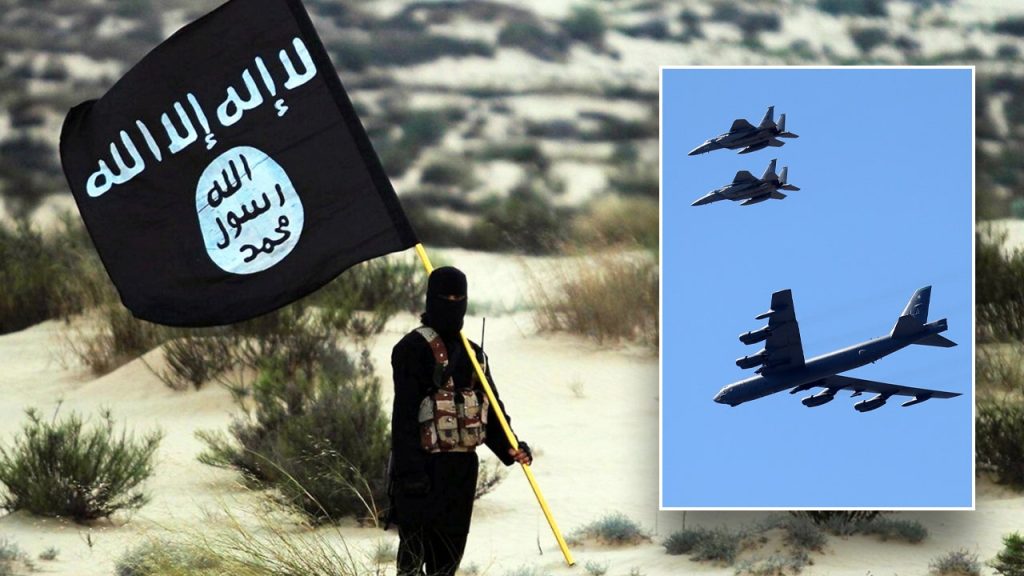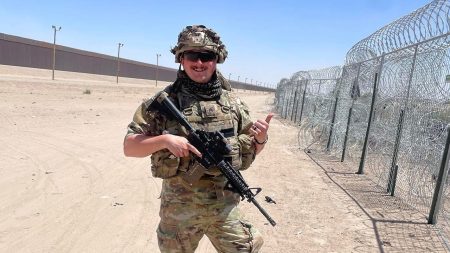The sudden collapse of Bashar al-Assad’s regime in Syria, after more than five decades of family rule, has created a power vacuum with the potential for dangerous consequences. A coalition of radical Islamist groups spearheaded the offensive that forced Assad to flee to Russia, where he was granted asylum. This volatile situation has raised concerns about the resurgence of ISIS, prompting the U.S. Central Command (CENTCOM) to launch a series of airstrikes targeting the terrorist organization. The strikes aim to prevent ISIS from exploiting the instability and reconstituting its forces in central Syria.
CENTCOM’s operation involved over 75 strikes on ISIS leaders, operatives, and camps, utilizing U.S. Air Force assets such as B-52 bombers, F-15 fighter jets, and A-10 ground attack aircraft. The targeted strikes focused on disrupting ISIS’s operational capabilities and preventing its resurgence amidst the chaotic landscape of Syria. While damage assessments are ongoing, initial reports indicate no civilian casualties. CENTCOM emphasized its commitment to holding all organizations in Syria accountable for any collaboration or support provided to ISIS. The U.S. military’s swift action underscores its determination to prevent ISIS from regaining a foothold in the region.
The fall of the Assad regime presents a complex and evolving situation. While the U.S. has expressed support for a peaceful transition of power in Syria through a Syrian-led and inclusive process, the rise of Islamist groups adds another layer of complexity to the unfolding events. Secretary of State Antony Blinken acknowledged the Syrian people’s hope for change while emphasizing the importance of preserving state institutions, resuming essential services, and protecting vulnerable communities during this transitional period. The U.S. government also stressed its intention to hold the Assad regime and its backers, Russia and Iran, accountable for past atrocities and abuses against the Syrian people, including the use of chemical weapons.
The U.S. government’s response reflects a cautious optimism tempered by the realization that the situation in Syria remains precarious. Blinken’s statement highlights the need to assess the actions, not just the words, of the rebel leaders who are now assuming greater responsibility. The U.S. has called on all actors in Syria to respect human rights, protect civilians, and uphold international humanitarian law. This cautious approach underscores the uncertainty surrounding the future of Syria and the potential for further instability.
The rapid shift in power dynamics in Syria is a significant geopolitical development with far-reaching implications. The collapse of the Assad regime, the rise of Islamist groups, and the potential resurgence of ISIS create a complex and unpredictable environment. The U.S.’s immediate military response aimed at containing ISIS demonstrates its commitment to preventing the terrorist organization from exploiting the power vacuum. However, the long-term stability of Syria and the region hinges on the establishment of an accountable and inclusive government that can address the needs of the Syrian people. The international community faces the challenge of navigating this complex landscape and fostering a peaceful transition that safeguards human rights and prevents further conflict.
The situation in Syria remains fluid, with many uncertainties surrounding the future of the country. While the U.S. has taken decisive action to address the immediate threat posed by ISIS, the long-term solution requires a comprehensive and collaborative approach involving regional and international actors. The focus must be on supporting a Syrian-led transition to a legitimate and representative government that respects human rights and addresses the root causes of the conflict. The international community must remain vigilant in monitoring the situation, holding accountable those responsible for past atrocities, and promoting a peaceful and inclusive future for Syria. The fall of the Assad regime marks a significant turning point, but the path towards a stable and democratic Syria remains long and arduous.










